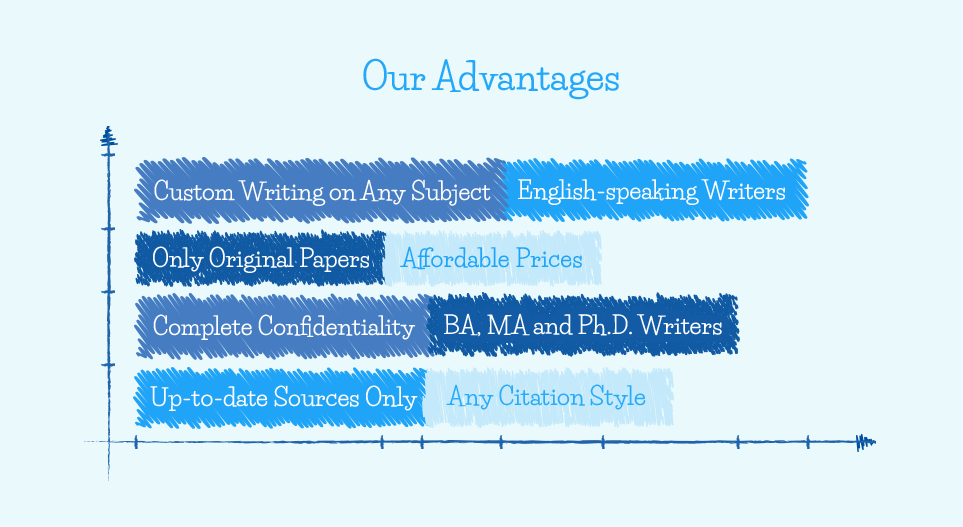Qatar’s Diplomatic Crisis
The latest disagreement between Qatar and its neighbors such as the UAE, Saudi Arabia, Bahrain, and Egypt is the most severe dispute that has not been witnessed in years and can further weaken an already tumultuous country. The apparent causes of the crisis were provocative statements purportedly provided by the Emir of Qatar and an accounted rescue payment by Doha to Iran-supported extremist groups, but the main problems are substantial discrepancies between Qatar and the neighboring states concerning how to deal with Iran, political Islam, and the problems of leadership in the region. Saudi Arabia and its allies in the Gulf Cooperation Council are closing the sea and land access to Qatar, driving out Qatari citizens, canceling flights, proclaiming 59 Qatari nationals as terrorist promoters, withdrawing diplomats, banning the screening of the Al-Jazeera network, and prohibiting the compassion towards Qatar. Qatar’s standoff with the requirements of its neighbors could lead to the escalation of economic and diplomatic issues. Therefore, to offer effective solutions to the current diplomatic crisis in Qatar, it is crucial to identify its main causes such as collaboration with the Muslim Brotherhood as well as strained relations with other neighboring states, and to determine the impacts and possible consequences of the given diplomatic crisis.
Causes of Qatar’s Diplomatic Crisis
Qatar’s associations with the Muslim Brotherhood have been the cause of disagreement with the GCC countries such as Saudi Arabia, Bahrain, the UAE, and Egypt (BBC, 2017). The Muslim Brotherhood has been seen as a terrorist group by the UAE and Saudi Arabia. In the year 2014, Bahrain, Saudi Arabia, and the UAE suspended diplomatic relations with Qatar. Earlier they had stated that the Muslim Brotherhood implemented policies and orientations, which opposed the policies of the GCC (GCC News, 2018). Qatar was also blamed for failing to observe the Riyadh statement that was signed in 2013. Qatar’s relationship with Iran has so far been bothering its adversary Saudi Arabia. Iran’s issues with Saudi Arabia can largely be branded as two-fold, particularly regional ambitions and sectarian rivalry (VOA News, 2017). The latter has been determined by history. Saudi Arabia criticized Iran for its disrepute in the block. Both countries have remained in conflict with Bahrain, Syria, Lebanon, Iraq, and Yemen as they have faced regional problems such as the Islamic State of Syria and Iraq (ISIS), providing financial support to extremism and terrorism, as well as interventionist agendas, including Hajj politics (VOA News, 2017). Saudi Arabia has accused Qatar of promoting Iran-backed militants in Shiite regions of Eastern Bahrain and Qatif. Nevertheless, Qatar has strongly refuted these claims.
Qatar’s associations with Hamas have displeased its GCC allies. In the year 2012, the Emir of Qatar paid a visit to the Gaza Strip where Doha promised the United States about 400 million dollars in support of Hamas together with the recurrent oil supplies (VOA News, 2017). Thus, Hamas moved its headquarters to Doha from Syria after they were supposedly found to have trained rebels. As Hamas’ affairs began to decline following the start of the crisis in Syria, Qatar was quick to fill the gap.
Consequences of Qatar’s Diplomatic Crisis
A statement by Mutlaq, a senior counter-terrorism counselor to Qatar’s foreign minister, alleged that Qatar has never supported terrorism. He blamed the neighboring states for penalizing Qatar for the claims of following its autonomous foreign policy (Sohanpal, 2017). It has been disputed that the latest denial of access will harshly affect the food importation to Qatar. According to the 2015 World Bank Report, the top associate countries where Qatar obtains its food products included Germany, France, the UAE, and the United States. Nonetheless, Saudi Arabia and the UAE account for 14 and 15% of the food imports respectively (Sohanpal, 2017). When it comes to the total imports of all products to Qatar, Saudi Arabia and the UAE ranked 6th and 7th according to the collected data.
Even though other states such as Turkey and Iran come to the rescue of the imminent food crisis in Qatar, the resolution to break air and land connections will eventually prove to be expensive for Qatar. As maintained by the UAE General Civil Aviation Authority (GCAA), the restrictions on flights are limited to only those flights, which are registered and owned by Qatari companies from transiting or landing via the airspace of Saudi Arabia, the UAE, and Riyadh. It may be easier for Iran to reach Qatar through the sea (Qatar University, 2015). Turkey is far away with no direct sea or land links. Therefore, Qatar might be forced to experience a rise in transportation costs because of the alteration in air routes. Alongside the prohibition imposed on flights, Qatar will miss out on productive businesses for its Qatar Airlines (Sohanpal, 2017). Other airways, namely Etihad, which is based in Abu Dhabi and the Emirate of Dubai, have been forced to stop the provision of their services to Qatar. In the recent past, Qatar has established a vital transit center and increased the number of its international flights to various continents.
The Qatar National Bank, which is 50% owned by the state and is the biggest of the top five institutions, has obtained stakes in the following regions, namely Tunisia, Egypt, Iraq, Syria, and the UAE (The Straits Times, 2018). Because of the upcoming FIFA World Cup of 2022 that will be arranged in Qatar, the banks of Qatar have so far extended their finances. Since several domestic banks of Qatar are dependent on foreign funding, attaining liquidity from its regional allies can be challenging (Qatar University, 2015). Nevertheless, not all the banks in Qatar with their branches in the province have received instructions for stopping operations in these branches.
Qatar is the major exporter of liquefied natural gas (LNG). Thus, the main diplomatic concern was the gas supply. Several reserves in Qatar are situated closer to the northern border of Iran (Tomba, 2016). According to the 2015 World Bank Report, Qatar’s worldwide export of LNG accounted for 50,522,864.20 million dollars (Memo, 2017). The top trading associates are India, Japan, the UAE, Korea, and China. In the past, Qatar has solved several of its LNG issues through long-term purchase and sale agreements whereby its allies pay increased prices for extended stable supplies thus making it beneficial for Qatar (Pradhan, 2018). In addition, Qatar entered into an extended agreement with Dolphin Energy, the UAE, in the year 2016 with the extra amount allocated to Water Authority and Sharjah Electricity (The Straits Times, 2018). Hence, this diplomatic crisis may affect the cost or the supply of LNG for Qatar’s global or regional associates.
Another area of concern was the inflow of foreigners to Qatar, who constitute a major percentage of its labor force (Lemon, 2018). The reports submitted in 2013 by the Gulf labor markets revealed that out of over 1.5 million robust labor force, 1.4 million were non-nationals (Tomba, 2016). These 1.4 million were employed accounting for 94.1% of the entire workforce in Qatar (Tomba, 2016). Therefore, the diplomatic crisis may change the labor force in Qatar in terms of the ratio of native and foreign employees.
Impact
The influence of Qatar’s alliance with Turkey and Iran may have far-reaching downbeat repercussions for the civil wars in Libya and Syria. Moreover, it may affect the growth of Iranian impact in the Arab world, the United States’ associations with Qatar, the United States operations in the region, food security in Qatar, the organization of the World Cup in 2022, the oil prices, as well as the general security in the Middle East (Gordon, Yadlin, & Heistein, 2017). The worsening of the United States’ security planning in the region, its capability to function in the province, and the developing divide in the Sunni camp only authorize and possibly unite Iran and the Islamist camp provided the purposes of the original actions.
A more troubling potential result of the continuing confrontation is that Qatar’s standoff with the demands of its partners and its likely rapprochement with Iran and Turkey cause economic, diplomatic, or even military intensification (Aleem, 2017). The UAE and Saudi Arabia have their full influence in Yemen and would perhaps be unwilling to get involved in another regional disagreement, but such growth cannot be barred if they feel that Qatar’s operations authentically jeopardize their essential security interests (Chughtai, 2018). Saudi Arabia concluded that it had no other alternative, but to take the risky step of launching a campaign in Yemen in the year 2015. Hence, if the current Qatari leadership persists to perform in a manner that Riyadh finds intimidating, it might settle on military action to replace it.
The GCC is an economic and political treaty of six nations in the Arabian Peninsula including Oman, Saudi Arabia, Bahrain, UAE, Qatar, and Kuwait. Before the crisis, these countries enjoyed a lot of political relations and stability, and freedom of movement, but this came to a stop when the blockade and the diplomatic crisis began.
How it works
Step 1
Visit our website and go to the order formStep 2
Fill in specific essay details in your order description sectionStep 3
Pay for your custom essay and get your order verifiedStep 4
Process of writing your academic assignmentStep 5
Editing and anti-plagiarism checkStep 6
On-time delivery of an already written essayRecommendations
Balancing its support for the major Gulf partners and their central interests with the necessity to evade persuading them to initiate hazardous diplomatic offensives, which can go wrong will not be simple for a government, which is yet to display the ability to use rare diplomacy (Coll, 2017). However, that is exactly the measure, which is needed to solve the existing crisis. Therefore, Qatar should limit its support for the groups that may hamper the security of its most crucial associates (Dorsey, 2018). Doha must consider that message and show its partners that it respects their well-being and avoids looking down on them without surrendering its right to an autonomous foreign policy, which does not include a hostile attitude toward Iran or termination of its discourse with the Islamist groups. Since the regional partners to this argument will not probably unearth a practical conciliation stand on their own, the US must make the main concern to assist them before the conflict continues to escalate in erratic ways.
Conclusion
Even though the diplomatic crisis can be perceived as a product of the enduring problems with Qatar, it is not likely that Qatar will comply. The confirmed political blames against Qatar are not fresh. As these factors failed to generate the desired outcomes for the GCC partners in 2014, it is less expected to accomplish the set goals this time. Moreover, considering Qatar’s reaction and attitude to the move, the nation seems to be preparing to create alterations instead of being subjected to force. Besides, the change in leadership of Saudi Arabia with the 31-year-old Salman Mohammed being crowned the next king, the likelihood of rapprochement appears much lower. Nevertheless, the crisis may cause rifts within the GCC provided that the actions by Saudi Arabia have not lured Qatar to the negotiating table. In addition, this can lead to the decline of the GCC as a union. This fact means a weakened anti-Iran movement that is counter-productive for both Saudi Arabia and the United States. It also leaves room for Turkey and Iran to access the Persian Gulf, an occurrence that both have opposed from time immemorial and which is now obvious. In terms of economics, the denial of access may interfere with its FIFA arrangements because of the inadequate cash liquidity. Nevertheless, given Qatar’s associations with the states in the block, it may not be difficult to find answers or adjust to the predicament. Qatar may also encounter negligible impacts on its national vision, even though it may be for a short while. Consequently, if the crisis develops, its effects may become apparent as soon as its long-term gas deals are terminated.

















